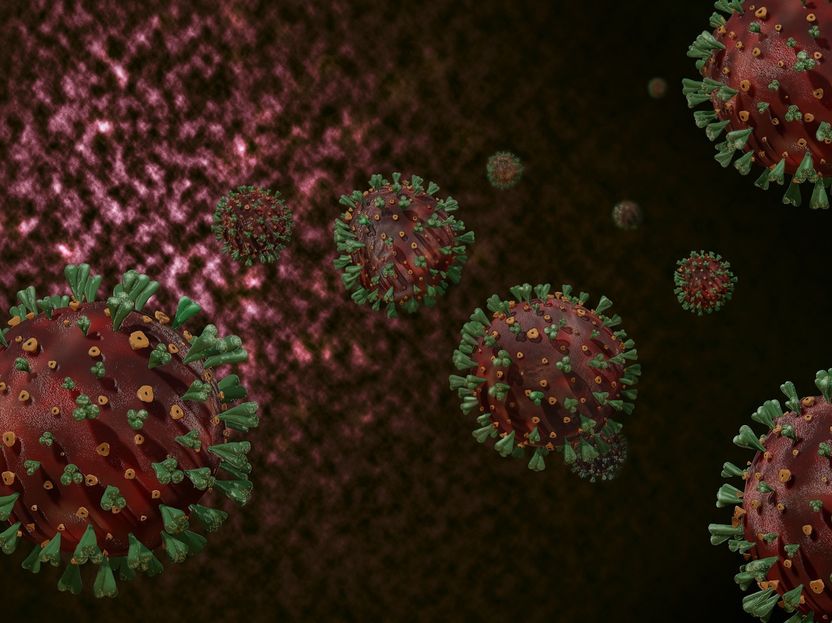Innate Immune System is Barely the Driver of Excessive Immune Reactions in COVID-19
Advertisement
Serious courses of Covid-19 disease are concurrent with an immune system that went out of control, whereby major amounts of immunological messengers are released. Contrary to previous assumptions, immune cells from the innate immune response obviously do not play a relevant role in these processes. This is the result obtained by a research team at the Paul-Ehrlich-Institut, headed by Prof Zoe Waibler and Dr Martina Anzaghe, as well as by Prof Georg Kochs’ group at the University Hospital at Freiburg. The subject of the study was the impact of a SARS-CoV-2 infection on important players of the immune system.

Coronaviruses (symbolic image)
pixabay.com
Coronavirus SARS-CoV-2 primarily infects cells of the lung (pneumocytes) and macrophages, cells of the innate immune system. A high viral load of SARS-CoV-2 is strongly associated with an excessive release of immunological messengers (cytokine storm). A cytokine storm means a prognosis of an unfavourable outcome of the disease for the person affected. In critically sick COVID-19 patients, the levels of many cytokines, including one of the most important inflammation-enhancing cytokines, interleukin-6 (IL-6) are increased significantly.
Up to now, early immune responses after a SARS-CoV-2 infection have not been understood entirely. It is assumed that the innate immune system contributes to the massive cytokine production and pathogenesis in COVID-19.
Dr Martina Anzaghe and Professor Zoe Waibler, head of Section Product Testing of Immunological Medicines in Division Immunology at the Paul-Ehrlich-Institut and their research team in co-operation with Professor Georg Kochs, University Hospital at Freiburg studied the role, which innate human immune cells – dendritic cells and macrophages – play in SARS-CoV-2 infections.
In laboratory experiments, the research group studied the processes that occur during contact of corona virus SARS-CoV-2 with human dendritic cells and two types of macrophages of the innate immune system. They found out that these cells are infected by SARS-CoV-2 and survive this infection well, i. e. they are not destroyed. Besides, the infection of these cells did not lead to a release of new virus particles – thus SARS-CoV-2 obviously cannot replicate in these cells. Another important finding is that the activation status of the cells on which it also depends to what extent the release of cytokines is mediated, barely changes. In fact, the infection of these cells did not lead to a release of important cytokines. A co-infection with other viruses such as flu (influenza) viruses did not alter this finding either.
“Our results indicate that neither dendritic cells nor macrophages play an important role in the partly life-threatening loss of control of the immune system in COVID-19 patients. This is another important finding in the process of understanding the mechanisms that lead to the partly disastrous immune reactions after SARS-CoV-2 infections. A better understanding of the processes could contribute to identifying risk patients at an early stage and providing them with better treatment. Furthermore, these processes could help understand fundamental mechanisms, which could also be of importance for other viruses”. This is how Dr Martina Anzaghe explained the significance of this study.


























































